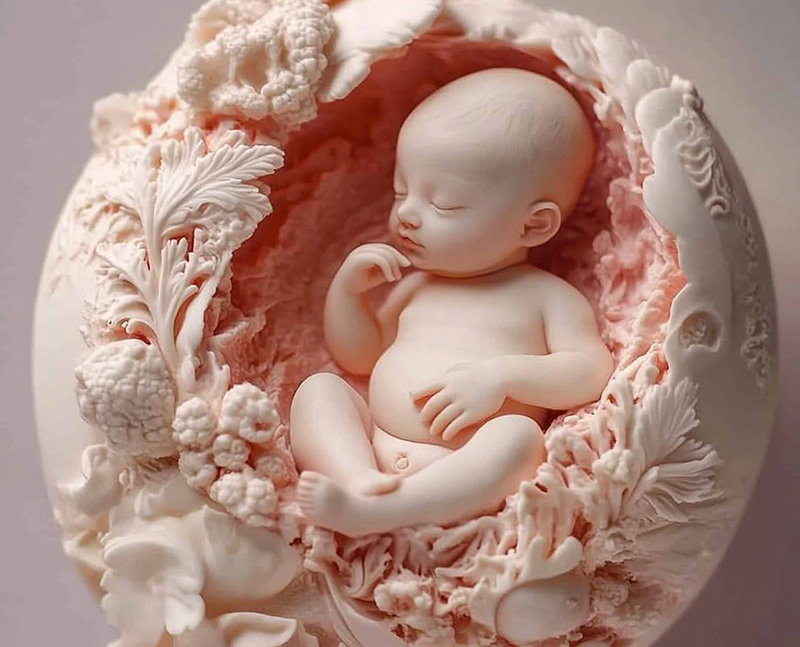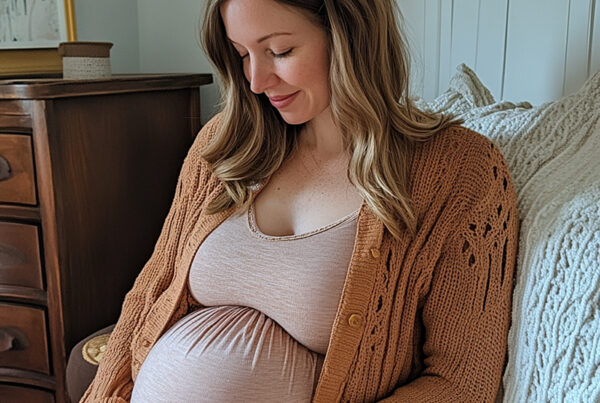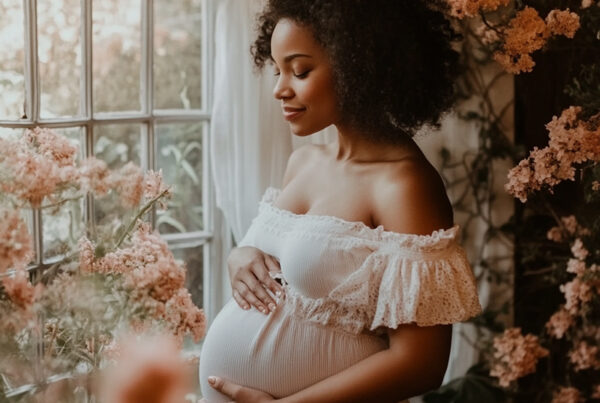The first trimester of pregnancy is an incredible time of rapid growth and development for your baby. From a single fertilized egg to a tiny embryo, the changes that happen in those first 12 weeks are nothing short of miraculous.
Understanding what’s happening during these early weeks can help you feel more connected to the life growing inside you and can bring comfort as you navigate through the changes in your body.
Let’s take a closer look at your baby’s development during this exciting early stage.
Baby Development in Early Pregnancy: What Happens Week by Week
Weeks 1–2: Conception and Implantation
The journey begins even before you realize you’re pregnant. In the first two weeks, which are technically considered part of your menstrual cycle, the egg is fertilized by sperm, forming a single cell called a zygote.
Over the next few days, this zygote begins dividing into more cells and travels down the fallopian tube toward the uterus. As it moves, it continues to divide, eventually forming a ball of cells called a blastocyst.
Once the blastocyst reaches the uterus, it will implant into the uterine lining, where it will begin to grow and develop. At this stage, your baby is just a tiny cluster of cells.
Week 3: Early Embryo Development
By the third week, the blastocyst has attached to the uterine wall, and the process of embryonic development begins. The cells start to specialize into different layers, forming the basic structures of your baby’s body.
- The inner layer will become your baby’s organs.
- The middle layer will develop into muscles, bones, and the circulatory system.
- The outer layer will form the skin, hair, and nervous system.
Though still too small to be seen on an ultrasound, your baby’s heart begins to form, and the neural tube (which will become the brain and spinal cord) starts to develop.
Week 4: A Tiny Heartbeat
By the end of week 4, your baby is about the size of a poppy seed. The embryo is now beginning to form its neural tube and a primitive heart, which starts beating at this stage.
This is a major milestone in the early development of your baby. At this point, the embryo’s shape is already recognizable, with the beginnings of arms and legs.
You might start to experience pregnancy symptoms, such as nausea, fatigue, and changes in your breasts, as your body adjusts to the pregnancy hormones.
Week 5: The Development of Key Features
At 5 weeks, your baby’s growth is really picking up. This is when the brain, heart, and spine begin to form in more distinct ways. Your baby is also starting to grow a small face, with the eyes, nostrils, and mouth beginning to form. The limbs start to develop as small buds on the body.
During this week, the placenta begins to develop as well, taking over the role of providing nutrients and oxygen to your baby, while also removing waste products.
Week 6: A Beating Heart and Tiny Limbs
By week 6, your baby’s heart is beating more steadily, and tiny arm and leg buds are forming. The brain and spinal cord are developing quickly, and the brain has already begun to divide into distinct regions that will eventually control movement, sensation, and thinking.
Though the baby is still tiny—about the size of a lentil—much of the basic structure of the body is already laid out.
Week 7: Facial Features and Beginning of Movement
In week 7, your baby is about the size of a blueberry. The facial features continue to develop, with the formation of the eyes, ears, and nose. The arms and legs are beginning to grow longer, and small paddles are beginning to form at the ends of the limb buds, where hands and feet will soon appear.
At this stage, your baby’s development is still primarily focused on creating the foundational structures that will support the rest of their growth in later trimesters. The limbs are still very small but beginning to take on more defined shape.
Week 8: Baby’s Heart and Organs Are Fully Formed
By the end of week 8, your baby’s heart is now fully formed and beating at a steady rhythm. Your baby is also starting to develop more detailed features, such as eyelids, eyebrows, and more distinct limbs. The organs—such as the liver, kidneys, and intestines—are starting to form and function as well.
Though your baby’s body is still small (about the size of a kidney bean), most of the critical structures for the baby’s growth are in place. It’s at this point that your baby begins to look more like a tiny human rather than an embryo.
Week 9: Baby is Growing Rapidly
At 9 weeks, your baby is about the size of a grape, and the body is growing rapidly. The arms and legs are now distinct, with fingers and toes that are developing more fully.
Your baby’s face is starting to take shape, with more defined features, and the external genitalia are forming, though it’s still too early to determine the baby’s sex.
During this week, the brain continues its rapid development, and the baby’s muscles are beginning to move. The baby is now moving around a bit more, although you won’t be able to feel those movements yet.
Week 10: Major Milestones for Baby
By the time you reach week 10, your baby has all the major organs and body systems that will continue to develop and mature over the course of the pregnancy. The baby’s limbs are fully formed and moving, and the eyes are fully developed, although they are still sealed shut.
At this point, the baby is now about the size of a strawberry. The baby is starting to resemble a tiny human, with a distinct head, torso, and limbs.
Weeks 11–12: Baby’s Development Continues
As your pregnancy enters the second trimester, your baby will continue to grow, and more changes will occur. The baby’s bones are becoming stronger, and organs are becoming fully functional. Though the baby is still small, many of the essential developmental milestones have been reached.
At 12 weeks, your baby is about the size of a lime, and most of the major organs and systems are in place, though they will continue to mature. Your baby’s movements may be happening, though they are still too small for you to feel just yet.
Final Thoughts
In these first 12 weeks, your baby goes through an extraordinary amount of development—from a tiny fertilized egg to a fully formed embryo, ready to begin growing and maturing over the coming months.
The first trimester can bring a lot of change for you, too, as your body adapts to the pregnancy. But know that your baby is hard at work, laying the foundation for a healthy and happy life ahead.
It’s an amazing time, and though it may feel like everything is happening so quickly, each day brings your baby closer to their birth. Take care of yourself during this early stage—your body is doing incredible things! 💛
At BabySteps, we’re here to guide and support you through each of these early changes. With certified experts available to answer your questions, we provide personalized advice on managing symptoms, nutrition, and emotional well-being. You’re not alone—let us help you navigate this amazing journey with confidence. 🌟




